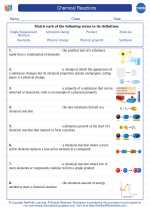Protium: The Most Common Isotope of Hydrogen
Protium is the name given to the most common isotope of hydrogen. It is composed of a single proton and a single electron, and it is the simplest and lightest atom. The nucleus of protium consists of just a single proton, with no neutrons present.
Atomic Structure of Protium
Protium has the following atomic structure:
- Atomic number: 1
- Protons: 1
- Neutrons: 0
- Electrons: 1
Properties of Protium
Some key properties of protium include:
- Symbol: H
- Atomic mass: 1.00784 u
- Charge: Neutral
- Stable and abundant in nature
Role of Protium in Chemistry
Protium is the most commonly studied isotope of hydrogen due to its abundance and simplicity. It is used in various chemical reactions and forms the basis of many organic and inorganic compounds.
Isotopes of Hydrogen
Hydrogen has two other isotopes: deuterium and tritium. Deuterium contains one proton and one neutron, while tritium contains one proton and two neutrons. Protium, deuterium, and tritium are all important in nuclear chemistry and have unique properties and applications.
Study Guide for Protium
When studying protium, it's important to focus on the following key points:
- The atomic structure of protium, including the number of protons, neutrons, and electrons.
- The properties of protium, such as its symbol, atomic mass, and stability.
- The role of protium in chemical reactions and its significance in the field of chemistry.
- Comparing and contrasting protium with the other isotopes of hydrogen, deuterium and tritium.
Understanding protium is crucial for building a strong foundation in chemistry, as it serves as a fundamental building block for more complex chemical concepts and compounds.
.◂Chemistry Worksheets and Study Guides High School. Chemical Reactions
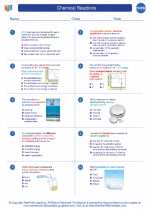
 Worksheet/Answer key
Worksheet/Answer key
 Worksheet/Answer key
Worksheet/Answer key
 Worksheet/Answer key
Worksheet/Answer key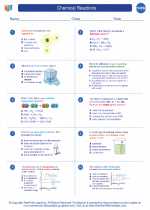
 Worksheet/Answer key
Worksheet/Answer key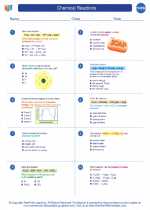
 Worksheet/Answer key
Worksheet/Answer key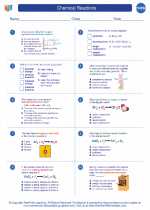
 Vocabulary/Answer key
Vocabulary/Answer key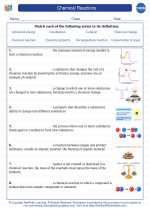
 Vocabulary/Answer key
Vocabulary/Answer key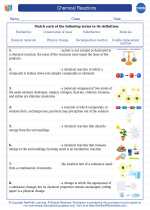
 Vocabulary/Answer key
Vocabulary/Answer key